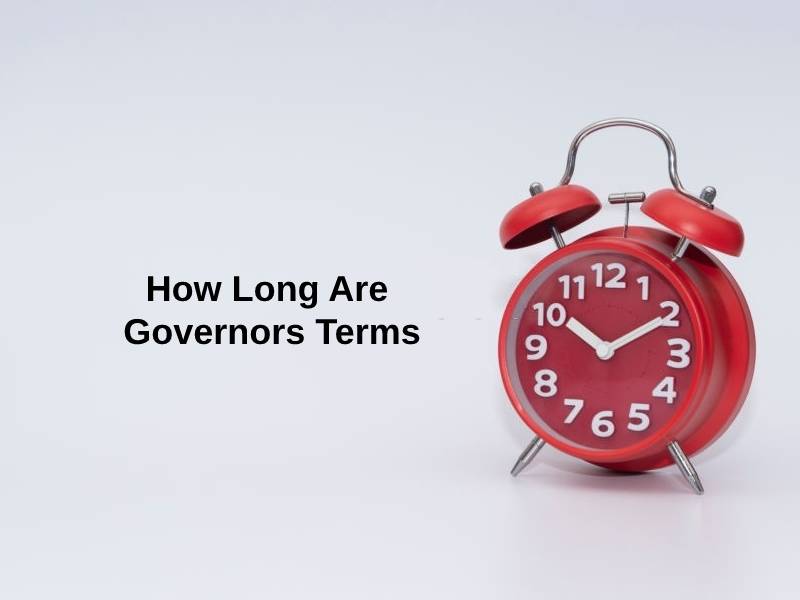Exact Answer: 5 Years
The governor is the head of a state just like the president is the head of the republic. The governor can be said as the nominal head of a state, while the chief minister is the executive head. As the governor acts as the nominal head, the real power lies with the chief ministers of the states and his council of ministers. The governors of the states of India have similar powers and functions at the state level as those of the president at the central level.
Governors exist in the states while lieutenant-governors or administrators exist in union territories. The governors and lieutenant governors are appointed by the president for a term of five years.

How Long Are Governors Terms?
| Post | Time |
| Governor | 5 years |
| Chief Minister | 5 years |
| President | 5 years |
Since the governor holds the office under the pleasure of the president, his office can be said to have no fixed term. President can remove the governor and the grounds upon which he may be removed are not laid down in the constitution. Governor may also get transferred from one state to another by the President. He can also be reappointed.
At the president’s discretion, the chief justice of the high court of the concerned state can also be appointed as the governor temporarily when and how the president thinks fit. Like for example, on the governor’s death, the chief justice of an HC can be appointed as the governor.
The governor is in charge of appointing the chief minister of a state, the advocate general, and the chairman and members of the state public service commissions. Apart from this, the state election commissioner is also appointed by the governor. He appoints other members of the council of ministers and distributes portfolios to them on the advice of the chief minister.
The president consults the governor in the appointment of judges in the high court and the governor appoints the judges of the district courts. All administrations are carried on the governor’s name. The governor of the state under the office is also the chancellor of most of the Universities in the state.
Why Are Governors Terms This Long?
The president has the authority to appoint the governor for each state by the warrant under his hand and seal. The central government is responsible to nominate the governor for each state.
Unlike elections for the president, there is no direct or indirect election for the post of governor. The office of a governor is not a part of the union executive and is an independent constitutional office. The governor does not serve the union government and neither is subordinate to it.
The governor of a state is appointed by the president of India. The primary function of the governor is to preserve, protect and defend the constitution and the law of the country and the state. The constitution vests in the governor all the executive powers of the state government. The governor appoints the chief ministers, who enjoy the support of the majority in the state legislative assembly.
The nomination of a governor by the union and his appointment by the president in India is based on the Canadian model of government. The governor possesses executive, legislative, and financial powers. As the governor is said to be a part of the state legislature, he has the right of addressing and sending messages, summoning, and dissolving the state legislature just like the president has, in respect to the parliament.
Although there are formal powers with the governor, in reality, he must be guided by the chief minister of state before making any major decisions. The governor lays before the state legislature, the annual financial statement and also makes demands for grants and recommendations of ‘money bills’.The governor also constitutes the state finance commission.
Conclusion
Governor is a constitutional head and at the same time, he is the agent of the center as the union government nominates governor in each state. The powers of the lieutenant governor of a union territory are equivalent to the powers of a governor of a state in India. Both are appointed by the president for a term of 5 years. A governor of a state in India holds office for five years, but it is subject to termination earlier if certain conditions are not fulfilled or not abided to.